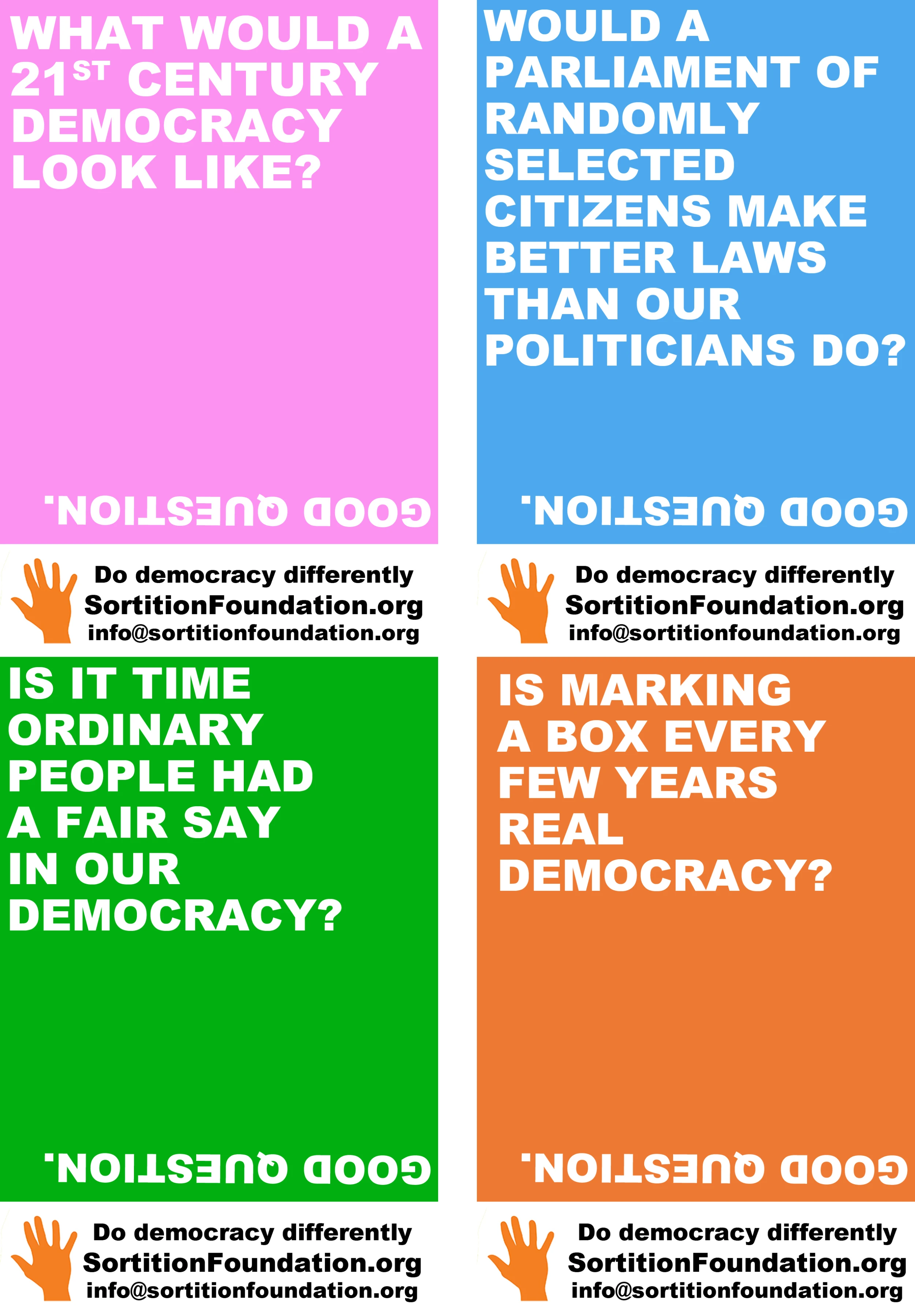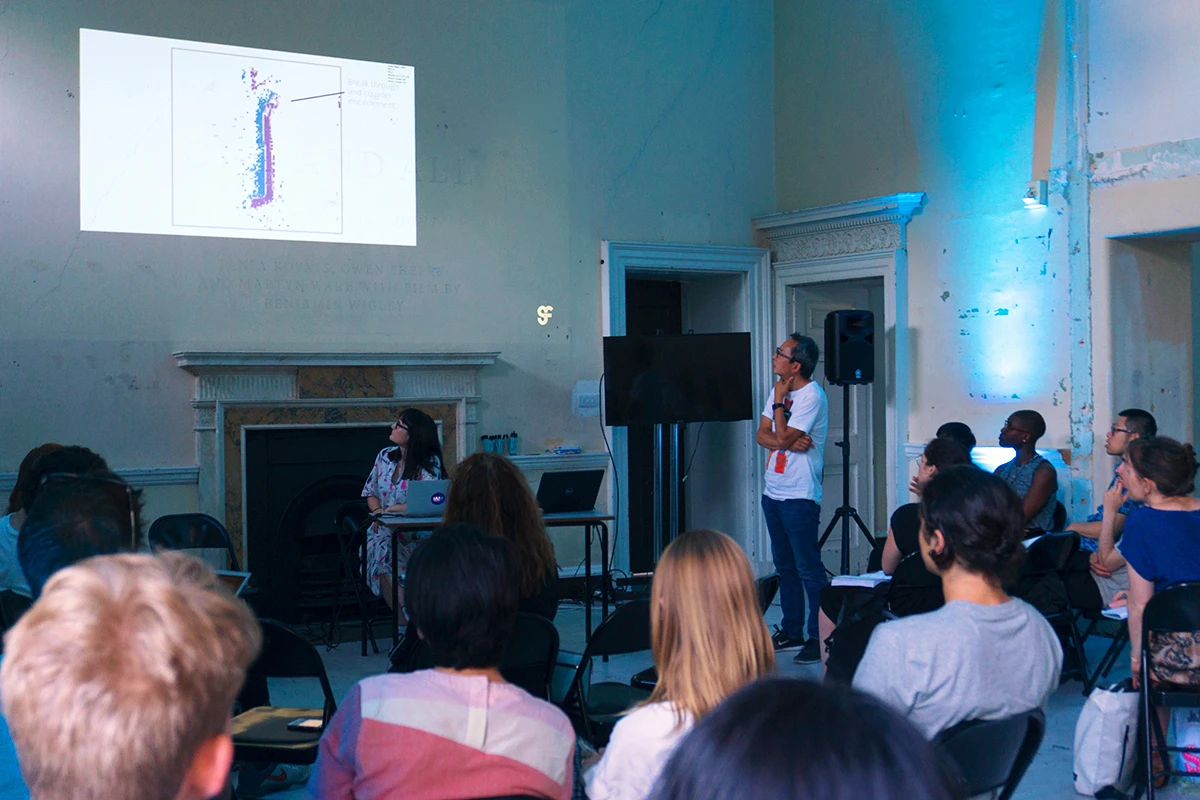- Writer
- Anab Jain
- Publishing Date
- 09.05.2023
The increasing influence – and power – of algorithms, is one factor currently complicating democracy as we have known it. For the third event in our Future(s) of Power series in association with Somerset House Studios, we experimented with the method of sortition to populate and hold a Citizens Assembly on Algorithmic Power. We had two reasons for doing this.
Firstly, we wanted to highlight that representative democracy – the rigmarole of elections once every five years – isn’t the only way of doing democracy. Alternative democratic methods exist. Sortition is one such alternative method; using stratified random sampling to select citizens by lot to populate assemblies or political positions. The Sortition Foundation describes the aim of sortition as an assembly, made up of a representative random sample of people, who make decisions, in an informed, fair, and deliberative setting.
Secondly, in gathering a diverse group of people together to collectively deliberate the issue of algorithmic power, we wanted to contrast collaborative human decision making with algorithmic decision making through the citizens’ assembly itself.

We chose to discuss algorithmic power, as algorithms have automated and improved much of everyday life, with the ability to handle huge datasets. But machine learning algorithms also contribute to the phenomenon of computational propaganda, where algorithms, automation and politics collide. Misinformation, botnets and fake news are used as political tools to either amplify or repress political content online. Private companies such as Cambridge Analytica are paid vast sums to help shape political campaigns. Accusations fly about Russian intervention via algorithms and botnets in both the UK’S EU Referendum and the 2016 U.S Presidential elections. Within the UK government, algorithms are already used in policy making. The government of the UAE recently launched its ambitious and somewhat utopian AI strategy to 2031. Algorithmic power is as pervasive as it is invisible.
This wasn't Superflux's first venture into initiating a public discourse involving citizens. Back in 2008 we held an open call to recruit eight people with diverse perspectives for our 'Power of 8' project. The selected eight were immersed in an in depth, collective exploration of an alternate future ecosystem, while we looked out for points of conflict and consensus amongst their varied worldviews and perspectives.
Recent citizens' assemblies around the world have reached beyond simple decision making on a particular issue, to also focus on engaging, informing, and including the public on issues rather than simply 'decision-making'. For example, the BurgerForum of 400 people in Germany in 2011 was as much about encouraging participating citizens to identify problems as it is responding to challenges. Another aim of the BurgerForum, was for citizens’ voices to be heard concerning political issues. Finally, including citizens in assemblies like these directly introduces those citizens to a different way of doing democracy.


We were lucky to be joined by some top experts on alternative democracy, algorithmic transparency and multi-agent AI and reinforcement learning. In the short time we had, this really helped us meet the “informed, fair and deliberative setting” aspect of a citizens assembly which uses sortition. Following a deliberately neutral introduction by Danielle from Superflux to the current conditions involving manifestations of algorithmic power, we heard lightening introductions from Professor Jun Wang, Dr Stephanie Mathieson and Indra Adnan about their work. With this informative aspect of the session complete, we hoped the group had enough background on the topic from various perspectives to consider the next stage of the experiment.
What recommendations and considerations do you propose for the German government looking to introduce this multi-agent AI system?
This was an important consideration, and also raises the question of voter engagement when the emotional engagement seemingly now inherent in political campaigning is removed. Would people even care about politics anymore if they were only presented with impartial stone cold facts? Which brings us to the next theme…